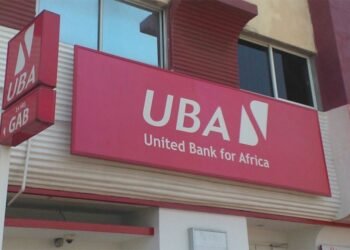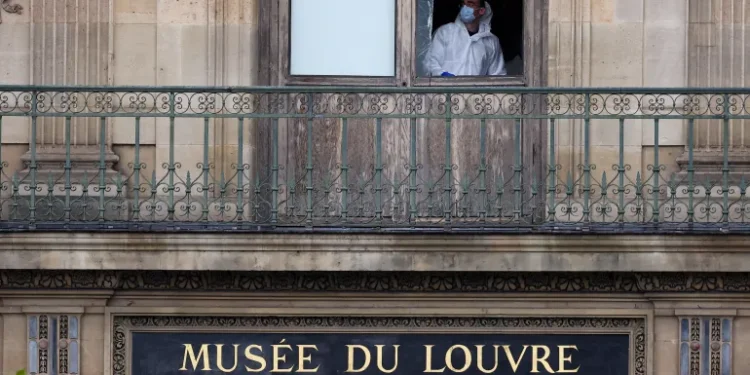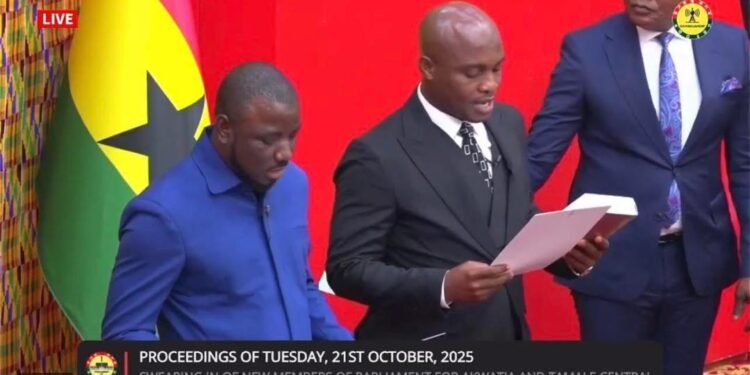The International Monetary Fund (IMF) has compelled the Nana Akuffo-Addo’s government to sign an agreement of ‘zero-financing’ with the BoG so not to forfeit its requested loan of US$3 billion.
This directive from the IMF follows the central bank’s loaned amount of GH¢ 40 billion to the Nana Akufo-Addo’s administration.
As a result, Ghana’s quest for an IMF bailout of $3 billion has been placed under serious threat as the Bretton Woods Institute has cautioned the government against borrowing excessively from the Bank of Ghana.

According to Bloomberg’s reportage, published on January 27, 2023, the IMF has asked the two parties to sign an accord on ‘zero-financing’, aimed at ending the government’s excessive borrowing from the central bank.
According to business news powerhouse, Bloomberg, the agreement has become one of the necessary conditions to make Ghana a satisfactory candidate for IMF’s US$ 3 billion loan bailout, which is needed to resuscitate the economy.
“The decision would bring a halt to central bank loans to the government…”
Confidential Source reveals
The agreement, it is believed will also stop State-Owned Enterprises (SOEs) like the Ghana Cocoa Board, which owes about GH¢7 billion, from using more central bank financing.
An incident which occurred in Ghana the previous week, involving the withdrawal of maturities from the accounts of cocoa bill by investors has been attributed to the warning on excessive borrowing by the IMF.

Meanwhile, Alex Annan Abakah has urged the government to be transparent to the Ghanaian populace about its dealings with the IMF.
Think Progress Ghana, a civil society organization, stated that it is crucial to clarify the terms of the fund to prevent the government from implementing policies such as the Domestic Debt Exchange Programme (DDEP).
Alex Annan Abakah, the Deputy Executive Secretary of the organization, during an interview, called for full disclosure and transparency in the negotiations between the government and the IMF.
“Citizens deserve to know what led us to this economic crisis. The government must be truthful and tell us how we got here.”
Mr. Abakah
The Deputy Executive Secretary stated that the nation’s inability to fulfill its debt obligations was not solely caused by external factors, but also by excessive borrowing and mismanagement of resources.
“It is unfortunate the government has announced that it is going to include individual bondholders in the domestic exchange programme.
“The financial impact of this decision on the people will be too much to bear.”
Mr. Abakah
Moreover, Mr. Abakah urged the government to increase its consultations with all stakeholders on the debt restructuring program.
Government officials living luxuriously is not an effective solution to the economic crisis
Mr. Abakah argued that punishing individual bondholders, particularly pensioners who rely on the interest from their investments, while government officials live luxuriously using taxpayers’ money, is not an effective solution to the economic crisis.
“We can also make a lot of savings from eliminating wasteful government expenditure by reducing the size of the government, fighting corruption and retrieving stolen public funds from corrupt officials.”
Mr. Abakah
Additionally, the government was urged to prioritize key projects and not continue investing in initiatives that Mr. Abakah claimed do not bring significant development to the country.
Regarding the Representation of the People’s (Amendment) Law (ROPAL), Mr. Abakah called on the government to suspend any plans of implementing the program as it would add more financial burden on the nation.
Instead, he suggested that the government should focus on addressing electoral challenges to ensure free and fair elections in 2024.























